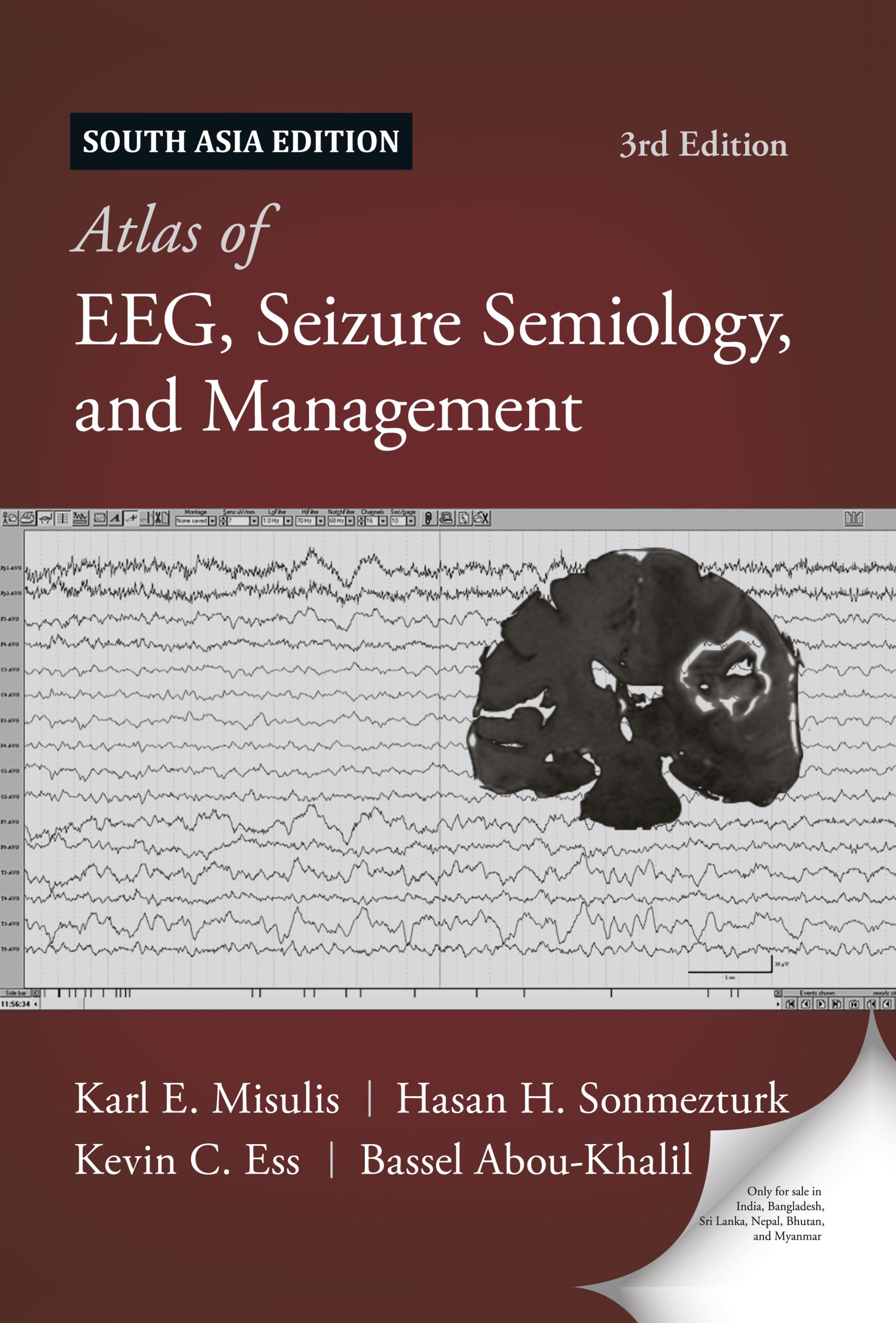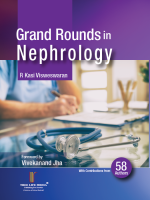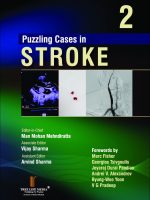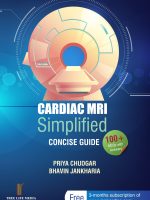Atlas of EEG, Seizure Semiology, and Management is a comprehensive yet concise textbook with a focus on practical use of EEG and clinical neurology in the diagnosis and management of epilepsy. It Begins with the physiological foundation of EEG, physics and electronics of EEG generation and recording, and technical details of EEG performance. Major sections then discuss seizure and epilepsy diagnoses, normal and abnormal EEG patterns correlated with clinical scenarios, guides to differential diagnosis of seizures, guides to medical and non medical management. and lastly, teaching case studies. For this edition, there is a separate pediatric EEG and epilepsy section, in addition to the discussion of pediatric aspects throughout the text. Revisions and additions have been made to keep up with the rapid pace of advancement in EEG and epilepsy. This third edition is authored and edited by four senior faculty of Vanderbilt University Hospital and Vanderbilt Children’s Hospital, all trained and board certified in EEG and clinical neurophysiology. These experts use their daily experience treating epilepsy in a busy academic medical center to provide a robust core of EEG and epilepsy knowledge to healthcare professional who diagnose and manage epilepsy, and who are seeking to develop and enhance their knowledge of EEG performance and interpretation. New in this edition : – Compares the new epilepsy classification schemes with the old. – Updated status epilepticus management, with new tables and flowcharts. – New interpretations for a variety of EEG patterns, some of which have controversial implications.
Related products
-
Grand Rounds in Nephrology
₹2,295.00Thirty-six different case scenarios including clinical nephrology, dialysis and kidney transplantation have been discussed in this volume. Each case scenario is followed by a focussed discussion on a selected aspect in a question answer format. For this issue, eminent nephrologists from all over India have contributed and shared their vast knowledge and experience. This book will be useful to the residents in Nephrology who are preparing to take the examination as well as clinical nephrologists to revise and update their knowledge and skills. Training and ability to present the available data clearly and answering questions with reasonable self-assurance is important when taking a clinical examination or viva-voce. The cases selected are broad based, covering kidney diseases in children, glomerular diseases, non-glomerular kidney diseases, genetic disorders, acute kidney injury, chronic kidney disease, electrolyte abnormalities, dialysis and transplant related clinical scenarios.
-
Puzzling Cases in Stroke Vol. 2
₹1,695.00Stroke is a treatable medical emergency affecting about 15 million people every year worldwide. It is the most common cause of common cause of disability globally and is the third most common cause of death. In the present times, there are effective treatment options which if given timely will benefit the patients of stroke remarkably. Therefore, correct diagnosis of acute stroke is extremely important for the clinicians to provide appropriate treatments and to ensure prevention of acute complications, including recurrent strokes. But sometimes a typical or uncommon presentation of stroke or “stroke chameleons”can lead to diagnostic dilemma. Therefore, timely diagnosis and management may be delayed. There are time – tested strategies which when strictly followed by the Neurphysician can reduce the chances of missing the correct diagnosis. Firstly, “Listen very carefully to the patient. He is telling you the diagnosis.” Clinicians should suspect stroke when the history suggests abrupt onset of neurological symptoms. Remember, Stroke is a clinical diagnosis and imaging is providing the corroboratory evidence. Secondly, a complete and systematic neurological examination should be routinely done in patients presenting with acute neurological symptoms because this might shed light on the true nature of the problem. Finally, even the most sophisticated neuroimaging tests might miss the stroke in the early hours after the event.
-
Puzzling Cases in Nephrology
₹2,295.00This Unique book provides a glimpse of how medical mysteries can be solved, or if not solved, atleast better understood. There is much in this book that will not easily be found in modern textbooks, as this to me organizes information around case examples rather than organizing facts around disease entities. In this book cases of renal diseases and kidney transplantation of particular diagnostic or therapeutic interest have been selected. This is an essential read for Nephrologists in practice and training and all those interested in care for a Renal patient
-
Textbook and Atlas of Dermatology 2nd Ed.
₹3,995.00Salient Features :
1) Comprehensive visual guidance you need to effectively evaluate, diagnose and manage all forms of skin disease. over 200 images richly depict etiology, clinical features, diagnosis and treatment, equipping you to provide the best care to every patient. 2) More than 40 chapters covering all dermatological ailments. 3) More than 200 illustrations from the Author’s personal database giving a unique overview of the diseases. 4) Hands – on clinical experience sharing in the form of cases, clinical presentations and management approach.
-
CARDIAC MRI Simplified CONCISE GUIDE
₹625.00Who Will benefit from this book? * Genuine interest in cardiovascular imaging * International certification exams * Enhancing skills in interpretations of cardiac MR Why this format? * Salient points, easier and faster to read. * Questions-answer approach for better understanding of topic. * Short and well contained guide. What are the highlights of the book? * Comprehensive coverage of all topics * Appropriate illustrations * Inclusion of recent advances
-
Current Progress in Orthopedics Volume 1
₹1,500.00The book disseminates orthopedic knowledge and shares the experience and skill of the best orthopedic surgeons from around the world. The aim of the book with almost 60 contributing authors which covers the subjects from Pediatric Orthopedics to Arthroplasty for the Aging Population and from Cartilage Repair to Open Fracture and Spine Surgery.
-
EMG Simplified
₹3,250.00ABOUT THE BOOK – A concise book for practical Electroneuromyography What is it for? Electrodiagnosticians Neurology trainees Neurology practitioners Orthopedic and hand surgeons Physicians Technologists COVERS Technical as well as neurological aspects Troubleshooting paradigms Approach based on presenting symptoms Disease based discussions Considerations about the common and the uncommon Case Studies
-
COVID – 19 VACCINES A Comprehensive Overview
₹1,595.00We are amid a pandemic that continues to smoulder almost everywhere with raging fire off and on at different places. It has not only devastated hundreds of thousands of families who lost someone to the virus and affected over 300 million people directly, it has affected all 7.9 billion of us in some way or other. At the same time, humanity has risen well to the pandemic challenges. It was realized very early during the current outbreal that safe and effcacious vaccines would be crucial in tackling the pandemic. The unprecedented global collaboration among all stakeholders: Scientists, pharmaceutical industry, funding agencies and Governments demonstrated what a global will could do: hundreds of vaccine candidates developed, and vaccine deployment started within 12 months of isolation of new virus something that takes over a decade otherwise.










Be the first to review “Atlas of EEG, Seizure Semiology and Management 3rd. Ed.”